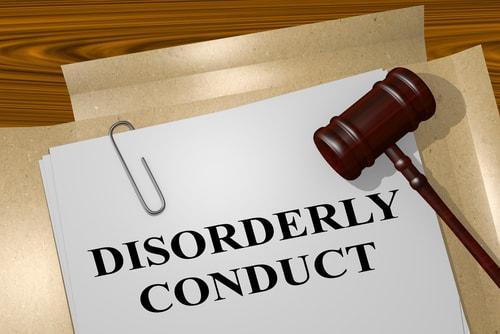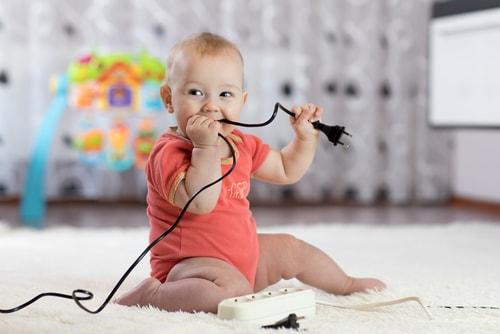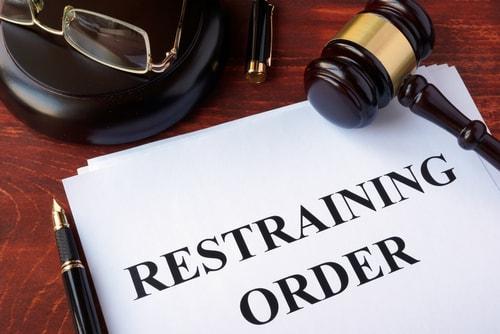Recent Blog Posts
Criminal and Civil Consequences of Retail Theft
 A large proportion of the general public has shoplifted in their lifetimes, either as very young children, as teens, or even as adults. However, while it may seem like shoplifting is a relatively harmless crime, Illinois law is structured in such a way that the taking of a relatively small amount of property can spiral into felony territory. If you or a loved one has been charged with retail theft, it is imperative that you understand the potential consequences before proceeding to trial.
A large proportion of the general public has shoplifted in their lifetimes, either as very young children, as teens, or even as adults. However, while it may seem like shoplifting is a relatively harmless crime, Illinois law is structured in such a way that the taking of a relatively small amount of property can spiral into felony territory. If you or a loved one has been charged with retail theft, it is imperative that you understand the potential consequences before proceeding to trial.
Statutes Are Specific
Retail theft in Illinois is defined as taking possession of, carrying away, or causing to be transferred or carried away any merchandise from a retail establishment, with the intention of retaining it without paying full retail value for it. While this definition includes shoplifting, it also includes other practices like changing price tags and returning shoplifted items for store credit or cash. It also encompasses rental items and failure to return them.
Marijuana Charges in Illinois
 There is quite a lot of misinformation making the rounds regarding marijuana possession in Illinois. Medical marijuana is legal for certain specific conditions, and possession of small amounts has been decriminalized. However, possession of large amounts, as well as distribution or intent to distribute, are still very much criminal offenses, and if you are charged with one of these crimes, it can create significant problems for you.
There is quite a lot of misinformation making the rounds regarding marijuana possession in Illinois. Medical marijuana is legal for certain specific conditions, and possession of small amounts has been decriminalized. However, possession of large amounts, as well as distribution or intent to distribute, are still very much criminal offenses, and if you are charged with one of these crimes, it can create significant problems for you.
Drug Possession Charges
Illinois’ Cannabis Control Act, though modified in 2016 to accommodate the Compassionate Use of Medical Cannabis Pilot Program Act (granting medical marijuana options to qualifying patients with significantly severe medical conditions), still allows stiff sentences for those caught with high enough amounts of marijuana or any of its derivatives. The general public policy of the state of Illinois is still to hold cannabis as a largely dangerous drug, and to that end, possession of large amounts is policed because of the deleterious potential harm to society as a whole.
What Is the Cost of a Divorce?

Cost of a Divorce
Divorce is also expensive. Court costs, lawyer fees and other expenses can add up quickly Below are some of the most common questions about the cost of divorce.
What costs are involved in divorce?
When you divorce your spouse, you may pay:
- Attorney fees
- Filing fees
- Mediation expenses
- Fees related to changing ownership of property (refinancing, title transfer, etc.)
- Parent education class costs
- Expert witness and subpoena fees
- Appraisal fees
How much would it cost to get a divorce without a lawyer?
It may be possible to purchase a divorce kit on the internet and represent yourself for under $100. In this case, you will also need to pay any costs not included in this amount, such as the filing fee or the cost of parenting education classes. However, unless your divorce case is extremely simple and you are on very good terms with your spouse, choosing to represent yourself may not be the best decision.
How Is Spousal Maintenance Calculated in Illinois?
 When two people decide to divorce, one of the most common questions that comes up is the issue of the payment of maintenance , a form of spousal support in Illinois. While not every divorce will result in someone paying spousal support, many will. Whether you will be the one receiving the support or making the support payment, it is a smart idea to be familiar with how maintenance works in Illinois before you finalize your divorce.
When two people decide to divorce, one of the most common questions that comes up is the issue of the payment of maintenance , a form of spousal support in Illinois. While not every divorce will result in someone paying spousal support, many will. Whether you will be the one receiving the support or making the support payment, it is a smart idea to be familiar with how maintenance works in Illinois before you finalize your divorce.
Step One: Maintenance Award
An Illinois court will consider many different factors when assessing whether spousal support is warranted. These factors may be found in Section 504 of the Illinois Marriage and Dissolution of Marriage Act. Some of these factors include:
- The current and future earning potential of both spouses;
- The ability of both spouses to support themselves on their own incomes post-divorce (for example, one spouse may need to go back to school to update their credentials in their field);
What Is Disorderly Conduct?
 Disorderly conduct is a common crime that has recently come more into focus given the current rise in protests happening around the country. Any conduct that has the potential to disturb the peace can, in theory, qualify as disorderly, and if you are arrested or charged with an offense of this type, understanding it fully can make a difference in how it plays out.
Disorderly conduct is a common crime that has recently come more into focus given the current rise in protests happening around the country. Any conduct that has the potential to disturb the peace can, in theory, qualify as disorderly, and if you are arrested or charged with an offense of this type, understanding it fully can make a difference in how it plays out.
The Statute Is Vague
Illinois’ statute defines disorderly conduct as any behavior that is unreasonable and causes alarm or provokes a breach of the peace. This can encompass several different types of conduct and is often used as a catch-all of sorts for any behavior that is held to be somehow wrong or inappropriate without it being quite criminal enough to provoke a more specific charge. Numerous types of incidents would fall under disorderly conduct, such as domestic disputes without substantial injury, certain types of protest, public drunkenness, and the like.
Cohabitation and Spousal Support
 Cohabitation is a legal concept that has been around for as long as marriage, but it has only recently begun to acquire legal significance in the last two or three decades, at least in the United States. Cohabitating is done by couples who may want to try out living together or see how they function as a unit before taking the plunge into marriage and is not a legal status. However, there are certain legal facts that one should still be aware of if they decide to cohabitate, mostly to do with support from a previous marriage.
Cohabitation is a legal concept that has been around for as long as marriage, but it has only recently begun to acquire legal significance in the last two or three decades, at least in the United States. Cohabitating is done by couples who may want to try out living together or see how they function as a unit before taking the plunge into marriage and is not a legal status. However, there are certain legal facts that one should still be aware of if they decide to cohabitate, mostly to do with support from a previous marriage.
Not True in All States
In many states, orders for maintenance can generally be modified or terminated upon a showing of a “substantial change in circumstances” - for example, if an obligor loses their job and takes a new one that only pays enough to put a roof over their head, they might ask for maintenance to be terminated or at least put in abeyance because they lack the money to pay it. This is, however, an extremely unusual situation - most of the time, spousal support can only reliably be terminated upon the recipient’s remarriage or on the death of one spouse.
Prenuptial Agreements and Divorce
 Prenuptial agreements, also called premarital agreement, are becoming more and more common in this day and age. However, many remain unaware that they are not cure-alls; there are certain things that are not permitted to be disposed of or decided within an agreement of this nature. If you are getting married in Illinois and you and your future spouse decide to execute a prenuptial agreement, you must be aware of what can and cannot be included, or you run the risk of the agreement being held to be invalid.
Prenuptial agreements, also called premarital agreement, are becoming more and more common in this day and age. However, many remain unaware that they are not cure-alls; there are certain things that are not permitted to be disposed of or decided within an agreement of this nature. If you are getting married in Illinois and you and your future spouse decide to execute a prenuptial agreement, you must be aware of what can and cannot be included, or you run the risk of the agreement being held to be invalid.
The ILUPAA
Illinois has adopted the Uniform Premarital Agreement Act (UPAA or ILUPAA), which establishes specific guidelines and requirements for prenups that must be upheld. A prenup is essentially a contract, and like any other contract, certain things may not be included, and certain things can only be included if done so properly. The contract does not become effective until the marriage actually takes place, but once it is effective, it will be upheld unless it was unconscionable.
What Is Child Endangerment?
 Illinois law is committed, as a general rule, to safeguarding the welfare and the best interests of the state’s children. Parents’ interests are subordinate to the rights of children to have safe and loving homes, which is why any allegation of child abuse, neglect or endangerment is taken extremely seriously by authorities. If you have been accused of child endangerment, it is imperative that you understand the nature of this allegation against you so that you can respond appropriately, regardless of your innocence or guilt.
Illinois law is committed, as a general rule, to safeguarding the welfare and the best interests of the state’s children. Parents’ interests are subordinate to the rights of children to have safe and loving homes, which is why any allegation of child abuse, neglect or endangerment is taken extremely seriously by authorities. If you have been accused of child endangerment, it is imperative that you understand the nature of this allegation against you so that you can respond appropriately, regardless of your innocence or guilt.
Definitions and Examples
Child endangerment is defined under Illinois law as causing or allowing a child to be “placed in circumstances that endanger the child's life or health.” This may sound quite vague, but most judges are not interested in pushing the boundaries simply because in extreme circumstances, anything and everything might be dangerous to a child’s life or health. A fact-finder will be interested in immediately threatening or dangerous actions as a general rule - examples would include leaving a young child unattended for more than 10 minutes, indulging in violent behavior or the use of illegal substances in the child’s presence.
Tax Consequences of Illinois Divorce
 Divorce affects every aspect of one’s life, from the physical to the emotional to the financial. It is the latter, however, that can sometimes surprise people, and the tax consequences can be the most shocking of all if someone is unprepared for them. While divorce may be the best option for you and your spouse, it is nonetheless important to be prepared for the potential financial changes that may occur.
Divorce affects every aspect of one’s life, from the physical to the emotional to the financial. It is the latter, however, that can sometimes surprise people, and the tax consequences can be the most shocking of all if someone is unprepared for them. While divorce may be the best option for you and your spouse, it is nonetheless important to be prepared for the potential financial changes that may occur.
Tax Brackets and Details
Most married couples choose to file a joint return, and if you are still married on December 31 of a year, you may file jointly for that year - even if your proceedings are in motion on that date, unless a divorce decree has officially been issued, you are considered married. Once your divorce is final, however, you must file as a single person, and this can sometimes mean a change in tax brackets, though property division is usually tailored to try to avoid that.
Issues also may appear when dealing with details such as exemptions or refunds - for example, couples may dispute who may claim the exemptions for the children. In 2017 and the past, the exemption is usually taken by the custodial parent if both parents supported the child, though in 2018 this may change due to the recent modifications to the tax code. Either way, it is possible for the spouses to negotiate who will claim the exemption or exemptions, and it will generally be accepted - decisions like this are able to be included in pre- or post-nuptial agreements, and prenups (or postnups) will generally pass muster in Illinois unless they are clearly unconscionable.
Violation of Protective Orders
 Domestic violence is a pervasive, unending problem in the United States, and in Illinois, victims of all genders have been feeling the proverbial pinch. Due to Illinois budget woes during the past few years, funding for shelters and crisis centers has dipped, leading to fewer victims being given shelter or assisted in other ways. Some have sought to get around this by filing Orders of Protection (OPs) against their alleged abusers themselves, but without legal help, that order may be flawed, or it may simply be ignored. It is imperative for victims to know that they are not powerless, and that there is recourse.
Domestic violence is a pervasive, unending problem in the United States, and in Illinois, victims of all genders have been feeling the proverbial pinch. Due to Illinois budget woes during the past few years, funding for shelters and crisis centers has dipped, leading to fewer victims being given shelter or assisted in other ways. Some have sought to get around this by filing Orders of Protection (OPs) against their alleged abusers themselves, but without legal help, that order may be flawed, or it may simply be ignored. It is imperative for victims to know that they are not powerless, and that there is recourse.
Misconceptions About OPs
Pop culture and anecdotal evidence tries to paint Orders of Protection as largely useless, and it is generally true that an OP will not stop a truly determined abuser. However, it will deter many, and for those it does not, the penalties for violation can add up and generate or contribute to a significant prison sentence in the end. Most violations of OPs are Class A misdemeanors, but violating an order of protection against a child, or against removal or concealment of a child, is a Class 4 felony.
 1200 Harger Road, Suite 830, Oak Brook, IL 60523
1200 Harger Road, Suite 830, Oak Brook, IL 60523







